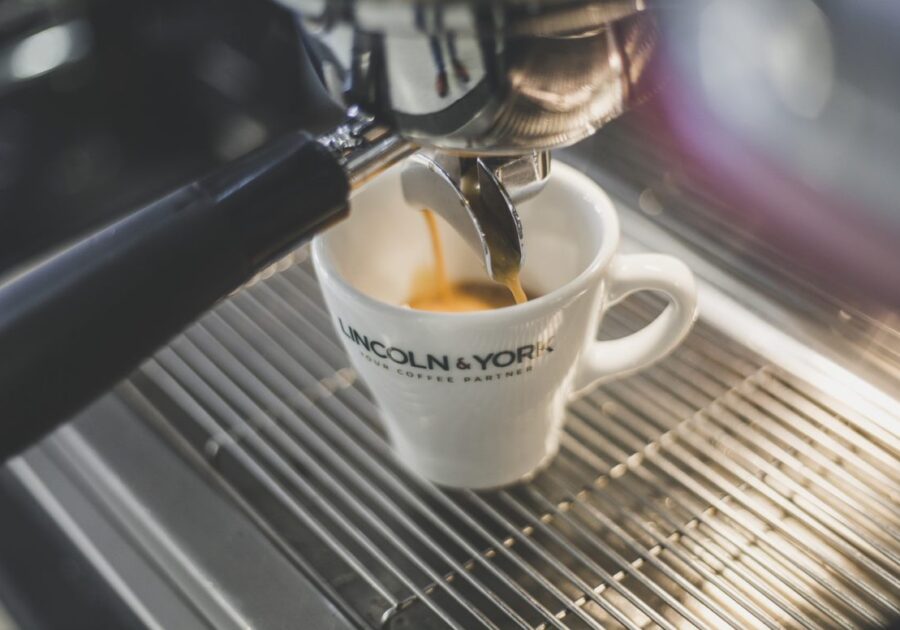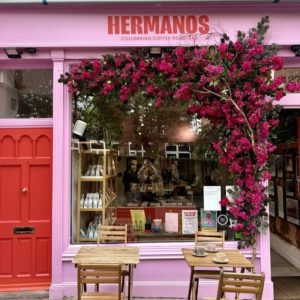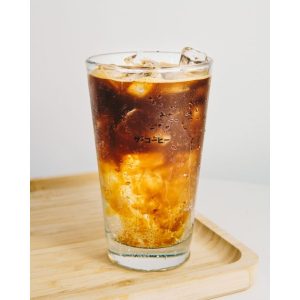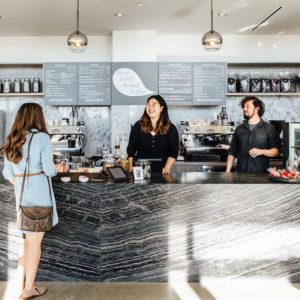From Coffee Enthusiasts to Leading Private Label Roaster

Credit: Lincoln & York
Lincoln & York, founded in September 1994 in Lincolnshire by coffee buyers and traders, James Sweeting and Simon Herring, is now one of the largest independent coffee roasters and private label suppliers in the United Kingdom. The company roasts 9000 tonnes of coffee annually at its 6000 square-metre facility, serving the needs of 150 customers across 32 markets.
It has not always been like that, commented Ian Bryson, managing director at Lincoln & York. The first steps were taken in a garden shed under an operation the company described as ‘humble beginnings.’ This was a time of experimentation, learning, and building relationships in the coffee industry. At that
time, the company did not position itself as a private label supplier at all, but rather as a passionate group of coffee enthusiasts eager to share their love for the brew with others.
“As demand grew in the out-of-home sector, we recognised a significant opportunity in customising our offering to meet the unique needs of each client and brand,” Bryson said. “Since taking this opportunity, we’ve maintained a steadfast commitment to quality, integrity and sharing our coffee expertise with our partners.”
The company took advantage of the UK coffee boom of the 1990s, when, as Bryson pointed out,
it was well-prepared to meet a rapidly increasing demand. Over the past few decades, the landscape of UK high streets has transformed significantly. Coffee shops, whether independent craft cafés or prominent high street chains have become ubiquitous. The company says that this reflects a broader shift in consumer preferences and lifestyle choices.
Over the past three decades, the business has been evolving alongside these consumer preferences, Bryson noted. “When the business first started roasting coffee back in 1994, a dark roasted blend of Arabica and Robusta beans was the core offering. Today, we see a much bigger demand for 100 percent Arabica blends, medium-lighter roasts and specialty coffee as consumers increasingly seek premium coffee experiences,” he revealed.
Over the years, Lincoln & York has built up a well-diversified orderbook. The company serves a wide range of channels from independent cafés and coffee shops to high street chains, also covering wholesale, contract catering and supermarket retail, as well as the hospitality and leisure industries. “Supplying over 11 global markets directly and a further 21 indirectly we not only bring coffee expertise which supports growth across these sectors, but we also understand the compliance requirements our
customers face, ensuring seamless support every step of the way,” Bryson said.
The growth potential is clearly far from being exhausted. “We’re always exploring new opportunities across Europe and beyond, focusing on quality and helping our existing customers expand internationally,” he added.
Strong Foundation for Growth
Bryson shared that Lincoln & York’s business philosophy is built on four principles: Expertise, Excellence, Flexibility, and Family Values.
“With three certified Q graders and deep insights into coffee trends, we bring industry- leading knowledge to every cup,” Bryson said. “And as a family-owned, partnership-led business, we hold integrity and a passion for what we do at our core”.
The company’s Q graders, the coffee equivalent of a sommelier, assess 150 cups daily to ensure the company always maintains its excellent standards and exclusively uses high grade coffee, scoring 76+ on the Q scale. “For us, quality is paramount,” Bryson emphasised. “Lincoln & York is also equipped to help our customers scale. Our BRC AA+ accredited carbon neutral roastery is home to six Brambati
roasters, offering roasting capacities from 30kg to 600kg, as well as 15 packing lines with a wide
range of packaging options across out-of-home and retail channels,” he said, adding, “as the
only UK roaster with a dedicated contingency facility, we are uniquely positioned to support customer growth and are a trusted coffee partner our customers can truly rely on.”
The company is also proud of its working environment. Lincoln & York has now grown to a team of 90 employees. It invests not only in machines but also in unlocking people’s potential, and its employees clearly appreciate such an attitude. Continued investment in equipment, facilities and the team has
facilitated this growth, and there are no plans to stop.
The company has unveiled plans to invest £1 million (USD $1.3 million) in its roastery to help double production volume by 2026 to support our growth path. Demand for quality coffee is rising, aligning perfectly with our focus on high grade commercial and speciality coffee,” Bryson explained.
Lincoln & York has already invested over £4 million ($5.3 million) in production site upgrades since 2020 Aside from the 600kg Brambati roaster, it has also recently installed a new high- speed retail packaging line, additional storage facilities, and a state-of-the-art coffee lab.
The company is also strongly committed to sustainability. In 2023 its roastery was awarded carbon neutral status by net zero campaign group One Carbon World, a testament to its efforts to reduce its environmental footprint. The company also plans to introduce 100 percent recyclable packaging by the end of 2024, further demonstrating its dedication to sustainable practices and the well-being of the planet.
In addition it is working in collaboration with Omwani Coffee Company and Migoti Coffee, funding the construction of a community reservoir to provide clean drinking water to hundreds of families in the coffee farming community of Kinama in Burundi.
Adapting to Constant Change
Lincoln & York’s investment program is not limited to equipment. It is also committed to providing its customers with the latest insight, trends and data, including conducting its own independent research. “It’s essential to clearly define your target market and understand what sets you apart from competitors,” Bryson noted, explaining the rationale behind this activity. “Companies looking to enter the private label coffee market shouldn’t underestimate the value of tracking the latest trends. Consumer habits in coffee are shifting rapidly, bringing with them a wealth of new opportunities. Private label businesses need to adapt and follow these trends to stay relevant and meet evolving customer expectations,” he added.
According to Bryson, the company’s investment ahead of growth, building the capacity, scale and expertise to support customers’ expansion, was a major driver of its success. Lincoln & York explores innovative opportunities to keep up with evolving tastes and market growth, like helping its customers offer cold coffee options and boosting efficiency through coffee extracts and ready-to-drink formats.
In general, the rise of coffee culture presents both a challenge and an exciting opportunity for private-label roasters, said Bryson confidently. “With such phenomenal growth in the coffee market, the number of roasters has surged – our latest data shows there are now over 650 in the UK alone. Many are small operations focused on supplying locally roasted coffee to nearby businesses, making competition far stronger than it was 30 years ago or even five years ago!” he exclaimed.
As it celebrates its 30th anniversary, Lincoln & York is also studying the evolution of the coffee market over the past decade. “This milestone provided us with not only a chance to celebrate but also time to reflect on the significant shifts in the coffee industry in the past years,” Bryson shared.
In honour of this, Lincoln & York launched its Coffee Culture Report. This project explores the evolution of UK coffee-drinking habits, looking back through the 1990s, early 2000s, and up to today. In particular, research reveals that there have been notable shifts in consumption patterns away from home, which have been particularly influenced by younger age groups. Understanding these changes is crucial for adapting to the evolving preferences of coffee drinkers in the UK.
“Our research highlights key trends driven by changing consumer preferences that are likely to shape the next the next 40 years of coffee culture.
Leading the way are younger consumers, with 40 per cent of those aged 18–34 drinking more coffee outside the home than they did five years ago. Iced coffee has even emerged as the third most popular drink in this age group, overtaking classics like the flat white and cappuccino,” Bryson said.
In addition, the research indicates that while coffee consumption habits away from home are rapidly evolving, changes in at-home coffee consumption are more gradual yet still significant.
Company executives remain confident the company is braced for bright times ahead. “As we look forward, we are excited to continue evolving with the industry and seeing where the next 30 years in coffee will lead us,”Bryson remarked.






